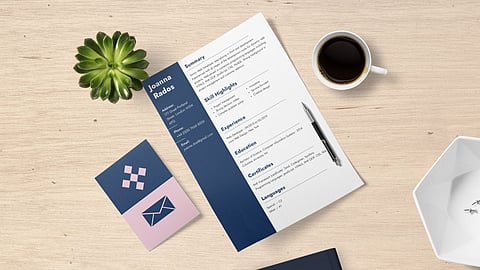
- LIFESTYLE
- FASHION
- FOOD
- ENTERTAINMENT
- EVENTS
- CULTURE
- VIDEOS
- WEB STORIES
- GALLERIES
- GADGETS
- CAR & BIKE
- SOCIETY
- TRAVEL
- NORTH EAST
- INDULGE CONNECT

Ever wondered why you keep applying to jobs with no success? You may even have applied to hundreds of roles over months, with multiple rejections. But you weather the storm and keep trying. But what if we told you that your resume might need sprucing up? In a job market where recruiters often spend just a few seconds scanning each resume, small missteps can make a big difference.
Using a generic resume for every role
Imagine an applicant serving out the same resumes for marketing roles as well as journalism jobs. How strong would you guess their applications are? They are most likely poor and sloppy and not tailored to the role you're applying for.
One of the most common mistakes job seekers make is sending the same resume to every employer. A generic resume that’s not tailored to the specific role can make you seem unfocused or disinterested. Employers want to see how your skills and experience align with their needs.
Carefully read the job description and tweak your resume to highlight the most relevant qualifications, achievements, and keywords for that role.
Submitting without a cover letter
Even if a job posting says a cover letter is optional, skipping it can be a missed opportunity. A well-crafted cover letter gives context to your resume, shows your enthusiasm for the role, and allows you to make a more personal case for why you're the right fit. In a competitive landscape, a cover letter can be a dealbreaker.
Use your cover letter to explain why you want the role and how your background uniquely positions you for it. Keep it concise and genuine.
Overcrowding the page or leaving it too sparse
A resume that’s too cluttered can overwhelm the reader, while one that's too minimal may fail to communicate enough value. Both extremes make it harder for employers to assess your fit.
Stick to one page unless you have 10+ years of relevant experience. Use clear headings, bullet points, and action verbs. Focus on impact: quantify achievements wherever possible.
Ignoring the details
There's one key skill almost every job seeks and this is an eye for detail.
Typos, inconsistent formatting and outdated contact information signal carelessness. Even one small error can leave a poor impression and cost you an interview.
Proofread your resume multiple times and consider having someone else review it. Ensure formatting is clean and consistent throughout.
Think of your resume as a tailored pitch, not just a list of past jobs. Curate it for each role, never underestimate the value of a cover letter, present your content clearly, and polish every detail. These small shifts can make or break your chances of landing your dream job.
For more updates, join/follow our WhatsApp, Telegram and YouTube channels.